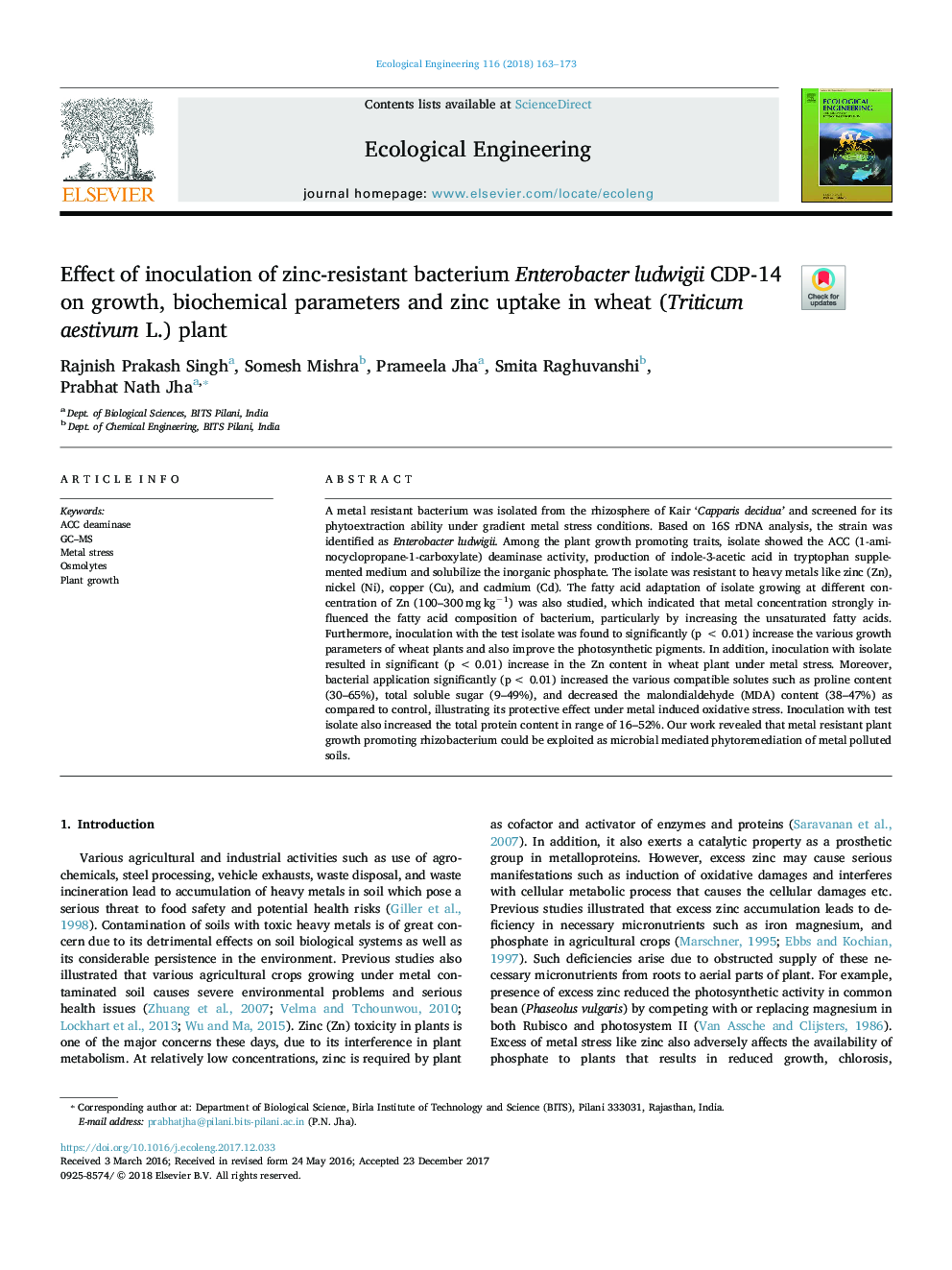| Article ID | Journal | Published Year | Pages | File Type |
|---|---|---|---|---|
| 8847930 | Ecological Engineering | 2018 | 11 Pages |
Abstract
A metal resistant bacterium was isolated from the rhizosphere of Kair 'Capparis decidua' and screened for its phytoextraction ability under gradient metal stress conditions. Based on 16S rDNA analysis, the strain was identified as Enterobacter ludwigii. Among the plant growth promoting traits, isolate showed the ACC (1-aminocyclopropane-1-carboxylate) deaminase activity, production of indole-3-acetic acid in tryptophan supplemented medium and solubilize the inorganic phosphate. The isolate was resistant to heavy metals like zinc (Zn), nickel (Ni), copper (Cu), and cadmium (Cd). The fatty acid adaptation of isolate growing at different concentration of Zn (100-300â¯mgâ¯kgâ1) was also studied, which indicated that metal concentration strongly influenced the fatty acid composition of bacterium, particularly by increasing the unsaturated fatty acids. Furthermore, inoculation with the test isolate was found to significantly (pâ¯<â¯0.01) increase the various growth parameters of wheat plants and also improve the photosynthetic pigments. In addition, inoculation with isolate resulted in significant (pâ¯<â¯0.01) increase in the Zn content in wheat plant under metal stress. Moreover, bacterial application significantly (p <â¯0.01) increased the various compatible solutes such as proline content (30-65%), total soluble sugar (9-49%), and decreased the malondialdehyde (MDA) content (38-47%) as compared to control, illustrating its protective effect under metal induced oxidative stress. Inoculation with test isolate also increased the total protein content in range of 16-52%. Our work revealed that metal resistant plant growth promoting rhizobacterium could be exploited as microbial mediated phytoremediation of metal polluted soils.
Related Topics
Life Sciences
Agricultural and Biological Sciences
Ecology, Evolution, Behavior and Systematics
Authors
Rajnish Prakash Singh, Somesh Mishra, Prameela Jha, Smita Raghuvanshi, Prabhat Nath Jha,
